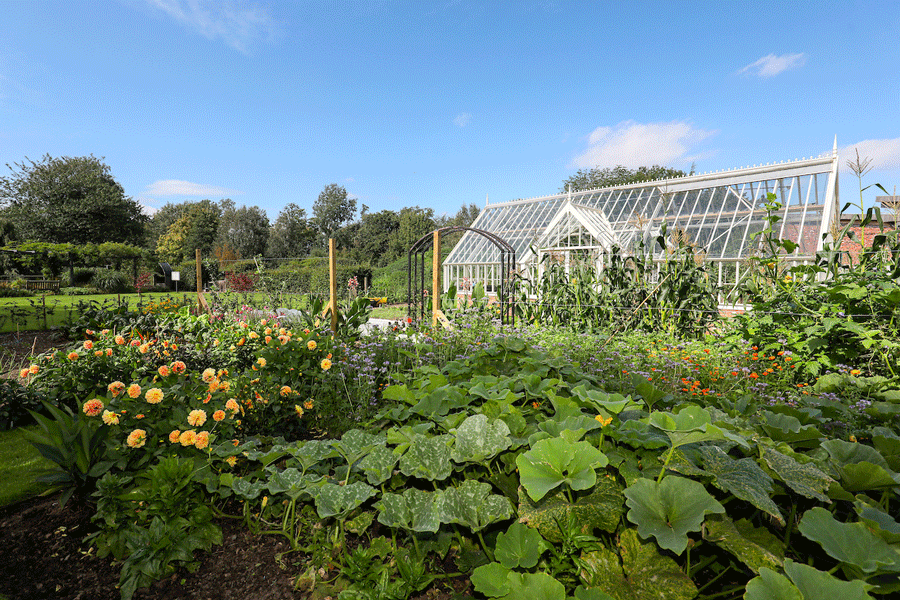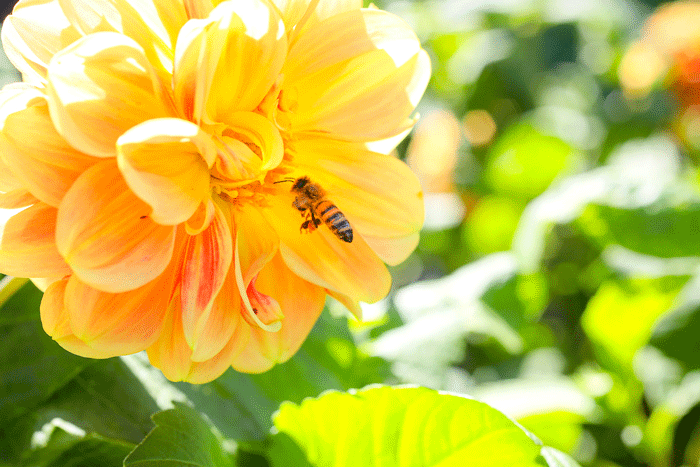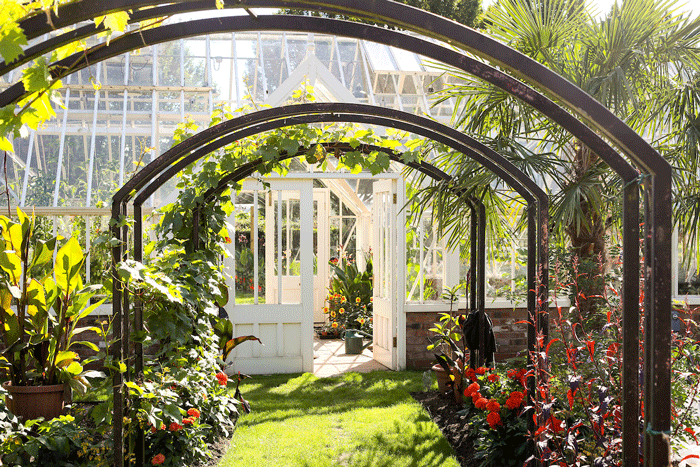New organic learning garden at Ryton
 The national lock-downs and restrictions due to the Covid-19 pandemic has seen an explosion in the number of new gardeners in the UK. In addition, the COP26 summit nears with its importance for our environment and climate globally. So, it’s certainly the perfect time for horticultural charity Garden Organic to open their new organic learning and demonstration garden at their Ryton site in Coventry, Warwickshire.
The national lock-downs and restrictions due to the Covid-19 pandemic has seen an explosion in the number of new gardeners in the UK. In addition, the COP26 summit nears with its importance for our environment and climate globally. So, it’s certainly the perfect time for horticultural charity Garden Organic to open their new organic learning and demonstration garden at their Ryton site in Coventry, Warwickshire.
Set to be opened on 29th July 2021, the demonstration and learning garden will help a new generation of people grow in a more environmentally friendly, sustainable and healthy way and hopefully address ways of dealing with the challenges of climate extremes such as flooding and drought as well as demonstrating the practices and principles of successful organic gardening.
This new garden is a more compact replacement for the original garden at Ryton which was closed in September 2019 following the sale of the charity’s extensive headquarter site at Ryton to Coventry University. The charity has remained on site leasing a much more manageable space from the University.
Garden Organic has been at the forefront of the organic horticulture movement for over 60 years, encouraging people to grow fruit, veg and flowers organically. The new demonstration garden adds a valuable extra dimension to their work at Ryton as it will demonstrate the important techniques of organic gardening including no dig, water saving, composting and organic lawn care.
Head Gardener Emma O’Neill provides a sneak preview of the layout of the new garden and explained to Reckless Gardener that the new garden will contain three distinct areas – a kitchen garden (pictured banner above), floral garden and a main working area: “The kitchen garden (potager), has fruit and vegetables on show within a large four bed rotation system. The display predominantly features unusual or endangered varieties of vegetables saved by the charity’s Heritage Seed Library,” she said.
“Vegetables include remarkable gems such as Freers Mummy Pea, rumoured to have come from the tomb of Tutankhamun, and the Black Valentine dwarf French bean, first recorded in 1897 and grown at Highgrove by HRH The Prince of Wales’s gardening team, who have acted as volunteer Seed Guardians for Garden Organic for a number of years. HRH The Prince of Wales is the Patron of the charity.
“This area demonstrates the important techniques of organic gardening including no dig techniques, water saving, green manure use, composting, organic lawn care, and methods of encouraging beneficial wildlife,” adds Emma.
The area also features raised beds and a container garden providing inspiration for those with limited space or in rented accommodation. A collection of 16 different types of comfrey will also feature as Emma explains Comfrey is an organic gardener’s best friend as the plant makes a wonderful organic liquid fertiliser with exactly the right balance of nitrogen, phosphorus and potassium to support the plants in our gardens.
In the floral garden there are three large beds demonstrating organic flower growing with beds split into planting that tolerates hot and dry to damp and shady conditions.
Planting has also been chosen to attract beneficial wildlife such as bees – the Tetrapanex papyrifea (Chinese rice-paper plant) which has fabulous foliage and fluffy flowers and is a magnet for bees will feature with Imperata cylindrical ‘Red Baron’ which has brilliant red spikes and is a great for attracting pollinators.
There is a display of around 30 alpines dedicated to Garden Organic founder, Lawrence Hills, who was a specialist grower of alpines and created beautiful displays at RHS Chelsea Flower Show.
Garden Organic’s main working area, including the glasshouse and polytunnel, shed and compost bays, the beating heart of the organic garden, will also have plenty to interest visitors. Emma explained that they also have a pond area, bug houses and a bee hotel.(pictured above: Planting in front of the Alitex greenhouse).
The charity’s aim is to provide practical advice and encouragement to inspire gardeners to grow in an environmentally sensitive manner. The work on the new garden has been supported by Viridian Nutrition – based just a few miles from Ryton. Working in collaboration with Viridian’s nutritional experts, the team has included a number of plants showcased for their therapeutic properties.
The charity is offering a wide range of courses and tours within the garden and online webinars and website information will continue to teach the principles to those too far away to visit. Masterclasses covering subjects such as gardening for biodiversity, climate change gardening and seed saving are all available to book now at www.gardenorganic.org.uk/events
Visits to the garden are by pre-booked tours and courses only and information on how to book a visit to the gardens can be found at www.gardenorganic.org.uk/plan-your-visit-ryton-organic-gardens
Picture credits: ©Garden Organic, banner and dahlia with pollinator credit Shaun Fellows, SHINE PIX Ltd



